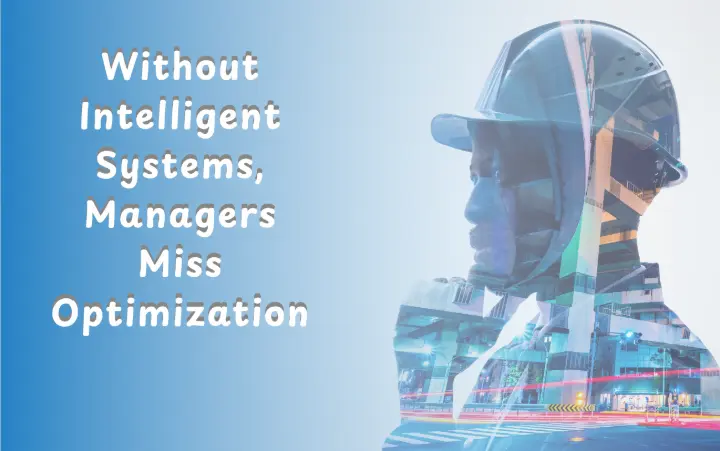Smart Construction in Saudi Arabia: How ERP Powers Mega-Projects
Saudi Arabia stands at the threshold of a transformative construction renaissance. Glistening smart cities, sprawling infrastructure, and ambitious giga-projects like NEOM, The Red Sea Project, and Qiddiya are reshaping the kingdom’s skyline and societal fabric. These projects are not merely feats of engineering; they symbolize a nation's audacious pursuit of future-readiness, blending sustainability, technology, and luxury at an unprecedented scale. Construction sites once dominated by cranes and concrete are now vibrant ecosystems of drones, IoT devices, and data streams.
Vision 2030: A Catalyst for Smart Construction
At the heart of this construction surge lies Vision 2030, Saudi Arabia’s master plan to diversify its economy and build a modern, knowledge-based society. Vision 2030 mandates the development of futuristic cities, tourism hubs, and logistic centers, all demanding impeccable execution. Smart construction is no longer a luxury; it is a strategic necessity. The ethos of Vision 2030 calls for integrated, efficient, and transparent project delivery - a demand that only sophisticated technology can satisfy.
The Rise of Digitalization in Saudi Construction
Gone are the days when construction management relied solely on blueprints and spreadsheets. Saudi firms are embracing digitalization with fervor. From BIM (Building Information Modeling) to AI-driven analytics and modular construction methods, technology is permeating every layer of operations. Central to this shift is the adoption of Construction ERP Solutions, pivotal tools that orchestrate the complex symphony of tasks, resources, compliance, and timelines. In a landscape where deadlines are unforgiving and budgets colossal, manual processes are relics of an obsolete past.
Understanding ERP: The Digital Backbone of Mega-Projects
Enterprise Resource Planning (ERP) systems serve as the digital nervous system of modern construction enterprises. They weave disparate functions - finance, procurement, project management, human resources - into a single, cohesive platform. In the context of Saudi Arabia's giga-projects, ERP becomes a linchpin, ensuring that colossal operations remain synchronized. By delivering real-time data insights and automating critical workflows, ERP empowers decision-makers to pivot swiftly, rectify deviations, and maintain an iron grip over project trajectories.
Common Challenges in Mega-Project Management
Despite unprecedented technological adoption, managing mega-projects in Saudi Arabia presents an intricate web of challenges. As construction firms undertake ever-larger, more complex ventures under Vision 2030, several critical obstacles routinely emerge:
1. Cost Overruns
Large-scale projects are particularly vulnerable to budget inflation due to material price fluctuations, labor shortages, regulatory changes, and scope creep. Without centralized financial oversight, minor oversights can cascade into significant budgetary disasters, threatening project viability.
2. Deadline Slippages
Delays are an endemic risk in giga-projects, often arising from poor coordination among subcontractors, late material deliveries, or unforeseen environmental factors. In a hyper-competitive landscape where reputational stakes are high, missed deadlines can jeopardize future opportunities and investor confidence.
3. Fragmented Communication
On sites involving thousands of workers and multiple contractors, communication breakdowns are inevitable without a unified platform. Disconnected emails, spreadsheets, and informal updates create silos of information, making it difficult to track progress accurately or respond swiftly to issues.
4. Regulatory Compliance and Reporting
With Vision 2030's strong emphasis on sustainability, safety, and innovation, construction firms must navigate a growing maze of regulations. Ensuring compliance across multiple jurisdictions and generating detailed reports for stakeholders demand meticulous data management and traceability.
5. Supply Chain Vulnerabilities
Material procurement is fraught with unpredictability, from global supply chain disruptions to customs clearance delays. Even minor material shortages can halt progress on critical workstreams, triggering ripple effects throughout the entire project schedule.
6. Quality Assurance and Control
Maintaining rigorous quality standards across sprawling, complex sites is another significant hurdle. Manual inspections, fragmented reporting, and inconsistent enforcement can lead to rework, increased costs, and diminished project integrity.
7. Resource Management Complexity
Coordinating human resources, equipment, and materials across geographically dispersed sites demands precision. Poor resource visibility often leads to idle labor, underutilized equipment, or double-booking conflicts—all contributing to inefficiencies.

8. Data Overload and Decision Paralysis
Mega-projects generate enormous volumes of data daily—progress reports, material logs, worker attendance, financial updates. Without intelligent systems to synthesize and interpret this data, managers risk being overwhelmed, leading to slower decision-making and missed opportunities for optimization.
Key Functions of ERP in Managing Giga-Projects
An integrated project management software solution performs myriad functions indispensable to mega-project success:
Project Planning and Scheduling:
Enables meticulous breakdown of tasks, clear assignment of responsibilities, and dynamic adjustment of timelines based on real-time progress reports. Advanced tools like Gantt charts, resource histograms, and critical path analyses help identify dependencies and prevent bottlenecks before they occur. Real-time scenario modeling allows project managers to simulate outcomes and optimize execution strategies dynamically.
Procurement Management:
Facilitates vendor prequalification, tendering, contract lifecycle management, and purchase order generation through a seamless digital interface. Procurement forecasting tools predict material shortages, manage supplier risks, and ensure price competitiveness. Automated approval workflows and integration with financial modules ensure transparent and compliant procurement practices.
Resource Allocation:
Tracks labor, machinery, and material deployment with a fine-toothed comb. AI-driven optimization engines recommend the most efficient use of available resources based on project priorities and constraints. Alerts for equipment maintenance, labor shortages, and material reorder points are generated proactively to avert costly delays.
Financial Management:
Integrates budgeting, accounting, and financial reporting into a unified ecosystem. Features include real-time budget tracking, variance analysis, automated billing, and cash flow projections. With precise control over expenditures and automated alerts for budget deviations, firms can maintain fiscal discipline even across sprawling multi-site operations.
Document Management:
Provides a centralized, cloud-based repository for all project documents—contracts, permits, change orders, designs—with stringent version control and user permissions. Automated workflows streamline document approvals, while powerful search capabilities enable rapid retrieval of information critical to audits, compliance, and dispute resolution.

Risk Management:
Identifies potential risks using predictive analytics and machine learning. The system evaluates the probability and impact of various threats—from supply chain disruptions to regulatory changes—and recommends mitigation strategies. Real-time risk dashboards give project leadership unprecedented foresight, allowing them to neutralize issues before they escalate.
The sheer complexity and ambition of mega-projects like NEOM demand such intricate orchestration, where thousands of workers, hundreds of contractors, and countless moving parts must operate in perfect harmony.
How Construction ERP Solutions Tackle These Challenges
Here, construction ERP solutions emerge not merely as facilitators but as strategic imperatives. They provide granular visibility into project costs, allowing early detection of financial anomalies. Integrated scheduling tools forecast potential delays before they metastasize into critical failures. Automated procurement modules fortify supply chains against disruption, while mobile-enabled on-site coordination apps ensure that field teams stay connected with headquarters in real time. Crucially, ERP platforms furnish executive dashboards that distill oceanic data into actionable intelligence, empowering leadership to course-correct with precision.
Powering the Future of Saudi Construction
Perfect Tech stands at the forefront of this technological evolution, offering a purpose-built construction ERP solution tailored for Saudi Arabia’s unique market dynamics. Designed to navigate the complexities of giga-projects under Vision 2030, Perfect Tech’s platform seamlessly integrates project management, procurement, financials, and compliance into one powerful ecosystem. Construction firms leveraging Perfect Tech’s expertise are not merely building projects; they are crafting the future of a nation. In an era where the margin for error shrinks and the scale of ambition soars, Perfect Tech delivers the digital prowess needed to transform grand visions into enduring realities.


Smart Construction for Mega-Projects in Saudi Arabia